The cost of insulin, a US health crisis
The United States of America does not have a universal health care programme. The government does not provide any health benefits for citizens, thus, anytime medical care is sought, it has to be paid for by the individual.
The health care issue has been one of the most contentious at the centre of politics in America. There are, of course, opposing viewpoints among conservatives and liberals.
But while these differences are apparently being resolved through protracted debate many patients will continue to suffer the consequences of this political storm.
One particularly vulnerable group is those with diabetes. One critical drug for these patients is insulin, which happens to be really expensive in America at the moment.
The one thing that stands out is that among all major developed nations, it's pretty clear that the United States comes in dead last.
John McDonough, Health Economist
On the other hand everyone, especially experts, should be careful not to assume that they know all the answers since what works in one country or one setting doesn't necessarily work in another.
So you know, there are there are aspects of the Australian system I like, there are aspects of the English system I like. But I don't think that there's a system we could just bring over here and install like a new fridge.
Sherry Glied, New York University, Wagner School of Public Service
The US insulin crisis
Insulin prices in America have become untenable and efforts are underway to lower them to a reasonable rate, as in many other developed nations.
Many analysts believe the current state of US healthcare has brought shame upon the United States, one of the richest countries on the planet, where healthcare is expected to be an innate human right for one and all.
Is healthcare a right or a luxury? It's a vitally important question, but before you respond, allow me to challenge you a little. I'll start with a story.
In 2015, I was offered an opportunity to spend a year training in one of the world's best cancer hospitals in the US. This was a huge privilege for me, and I was really excited to go the only strange thing was when I was filling out my starting paperwork for the job.
I was being asked questions like did my two young kids have any pre existing illnesses? I was also informed that even if they were completely medically well, I still had to pay about $25,000 a year in health insurance or I wouldn't be permitted to work there.
Tarik Sammour, Associate Professor, Colorectal Specialist
The significance of Insulin
Insulin has become a symbol of the high cost of health care in the US. Insulin prices have been steadily rising throughout the past decade in the United States.
Many people in the country cannot afford the drug as the average price for one vial of insulin is hundreds of dollars.
However, most diabetics would have no choice but to spend a huge sum of money on two to four vials per month. But why is insulin so expensive?
Our bodies need insulin to metabolize glucose to create energy. Access to insulin means life or death for millions of type one diabetics, but since 2002 the price of insulin has more than tripled.
The price of insulin has tripled during the last decade.
Amy Klobuchar, US Senator, Democrat
50, 60 years or more with production of insulin by pharmaceutical companies and we have no generics.
Rand Paul, US Senator, Republican
Monopoly driven prices
When it comes to insulin, one of the main reasons why it's so expensive is that it's a very valuable commodity for a vulnerable population. There's a population of patients who simply cannot use insulin as a luxury. It is a necessary item for survival. And in this context, they will pay anything to get access to it.
Coupled with that, we have only three companies controlling most of the insulin that's currently used in the US that creates a virtual monopoly. So a monopolistic product that is very essential for a population to survive, is going to, together, cause high prices.
We also have a situation where, because of various middlemen, there are synchronized price increases. So the same insulin that was sold for $20 over a 20 year period, it's increased to more than $300.
And that price increase is partly because pharmaceutical companies really need to keep increasing the list price in order to provide appropriate rebates to the middlemen.
Finally, there are many patent problems where the same insulin has been over patented over and over again, which prevents biosimilars and others from easily entering the market and there are delays in biosimilar insulin coming into the market.
So we have barriers to competition, which are also causing this problem.
Vincent Rajkumar, MD, Mayo Clinic Researcher
The complex and profitable healthcare sector is not easy to read. Determining the reasons behind asked prices of insulin today demands a deep investigation of not only the market but also the history of drug development.
Why is insulin so expensive in America compared to other countries, for example, any country in Europe?
It is important to understand that in the United States we pay about 10 times more for insulin than people in other wealthy nations pay. And this is in large part due to the fact that we don't have a health care system that actually is about health, we have a very privatized, corporate, healthcare system that really is about making profits for the corporations and doesn't have any interest in the health of people.
So the prices are not high because of any innovation or production needs, or anything like that; insulin is not expensive to make, it’s been around since 1923. It's simply because there's a large population of people who need this medication and a monopoly of pharmaceutical companies that are making it and they know they can get away with charging whatever they want.
Margaret Flowers, Popular Resistance, Baltimore, Maryland
Ten times higher
Insulin is an essential hormone that regulates blood sugar, without which, the human body is incapable of regulating how much glucose enters individual cells, and the cells could therefore starve.
In healthy people insulin is produced naturally but life without insulin could be impossible for people with advanced diabetes. Such patients have to inject insulin on a daily basis in order to regulate their glucose levels.
Reading about a black market between the United States and Canada, you probably have images of drugs and booze in your mind, but it's about diabetics who simply need their insulin.
So insulin is, you know, a life saving necessity that, you know, in capitalist America, Big Pharma has full control of our healthcare system because of their influence and their control of the healthcare system.
Each year their goal is to make more and more profit. Their goal is not to meet the needs of the people.
And that's why we're seeing a lot of these commodities being even pricier each year.
Abraham Marquez, Investigative Journalist, Los Angeles
Every year, one and a half million Americans are diagnosed with diabetes and more than 9% of the population are currently living with the disease, according to the CDC.
What risks are people with diabetes faced with in the United States, considering the fact that some resort to rationing their insulin due to the high price of the medicine?
It’s really a devastating thing here in the US, in 2019 around 87,000 people passed away from diabetes. And even the same politicians who are not only making the life saving medicines not available to American people, but it's the same politicians that are denying them to Venezuelans.
In 2019 I think around 40,000 Venezuelans died from diabetes due to not having access to insulin. So we're seeing these same politicians denying Americans a life saving medicine. They're also denying it to other people, other workers across the world.
Abraham Marquez, Investigative Journalist, Los Angeles
Whatever you're doing right now, stop and for the next 90 seconds, imagine what it's like to be Landon Johnson. He is a type one diabetic being forced to ration his insulin. He's 23 years old. His family is struggling so badly that they don't even have running water.
.... it kind of kills me not being able to take care of myself, you know, because, I mean, I live in a crappy house and my dad. We don't have running water right now. I can't afford to even buy insulin.
London Johnson, Diabetic Patient
Only three companies Novo Nordisk, Sanofi and Eli Lilly produce insulin in the country leading many activists to believe that the monopoly they have on the drug is the root cause of the high prices.
Of course the companies claimed their pricing processes are independent, yet many question why such an old drug should end up on the market at such an exorbitant cost for the consumer.
I am not optimistic about it. Of course, this is a significant problem and people have been really, you know, making a lot of noise about it and putting pressure on Congress to do something, and, in the version of the Build Back Better bill that passed the House of Representatives, It does have a provision so that people who either have Medicare or private insurance would not have to pay more than $35 a month.
Now, typically, in the US it can cost more than $300 for one vial of insulin. And so people are spending, you know, $1000 or $2,000 a month.
Margaret Flowers, Popular Resistance, Baltimore, Maryland
This is while the average price for the medicine in Japan, Canada, Germany, France, the United Kingdom, and Australia all range from around seven to approximately $15 per unit.
So what does the fact the cost of insulin production is much less than its retail price, say about health care and corruption in America?
The healthcare system the United States is not about health.
It's really about making money for these industries, whether it's the health insurance industries, the pharmaceutical industries and so, really, there's no system in the US that regulates the prices of medications like other wealthy nations and even non wealthy nations have sought some sort of way to control prices.
There's no rationale for the prices of medications in the United States. It's simply what these corporations can get away with, and Congress has really done nothing about it, you know, these pharmaceutical corporations lobby Congress to make sure that that doesn't happen, to make sure that they're not regulated.
So it just shows that our system is really broken and healthcare is not treated as a human right or a public good in this country.
Margaret Flowers, Popular Resistance, Baltimore, Maryland
While the ailment is becoming increasingly common data suggests that insulin prices have not always been this high. Today, the ridiculous price of insulin has caused concern not just among people with diabetes and their loved ones, but the whole of civil society, and more recently, even some of those in seats of power in the US.
This would only help people who have insurance and now that the bill has gone to the Senate and has basically stalled there. It sounds like we'll either get nothing or they may continue to whittle it down.
And it's likely, I mean, it's 100% likely that these pharmaceutical lobbyists are going to be in there as that happens, trying to make sure that they get rid of this provision, which really only helps part of the population.
People without health insurance have to pay the full price and they're the ones who can't afford to do that.
Margaret Flowers, Popular Resistance, Baltimore, Maryland
Many are concerned that due to the high cost of insulin, many patients refuse to inject a sufficient amount of insulin to control their diabetes, which could prove fatal.
Indeed, the non-affordability of the drug has led to several high profile deaths, which became both national and state news.
What can the Build Back Better initiative do to solve the problem of insulin in America and how would it proceed?
Yeah, the Build Back Better plan, I think what it's exposed to a lot of American people is that the Democrats are not united. They are divided.
We're seeing that, you know, the original plan was somewhere around four to 5 trillion. And now you got watered down down to like one or $2 trillion. And their removing a lot of other essential stuff from the Build Back Better plan, like access to dental, to vision, there's a child credit of $300 a month that they also removing as well.
This is just a clear example that the Democrats only interest is to continue to make major profits for these corporations.
Because when it came to the military budget, there was no discussion of how much money should go in there, there was not even a fight and there was $760 billion into a military budget that's only (for) killing; killing even more and more people around the world.
But when it comes to concessions for the working class, you know, it's a debate now.
Abraham Marquez, Investigative Journalist, Los Angeles
Insulin ought to be affordable
The medical researchers who took out a patent on insulin in 1923 offered a drug that could be affordable for even the poorest people suffering from the disease so the fact that the price has increased so dramatically is a shock to most doctors and activists in the world.
Such a long time has passed since the patent expired that the price should have fallen as a result of competition in the market and the introduction of generic brands.
Yet that has not come about, rather, long after the original cost of the innovation of insulin has already been defrayed, the life giving drug is becoming excessively expensive.
This is while the product has not really changed since it first became available other than the packaging and means of delivery.
Why are healthcare and its peripheral issues so politicized in the USA?
Almost everybody in the United States is impacted by this issue unless you're extremely wealthy. Either you have suffered, you know, struggled to get health care or you know somebody who has struggled to get health care, so this has been a number one issue for voters for a while.
We have two major parties, the Democrats and Republicans, and basically they just use this issue as a way to go after each other and neither one of them is really doing what is necessary.
So the Democrats will talk about how they think people should have health care, but then they don't do anything. The Republicans, you know, will use fear measures. They'll say, Oh, the Democrats are trying to put in place socialism or they're trying to take away your freedom or there's going to be rationing, but in reality, we have rationing of health care in the United States, but it's based on ability to pay which is like the crudest way to ration healthcare and so both of them just use it to go after each other but neither one of them is doing what is necessary.
Margaret Flowers, Popular Resistance, Baltimore, Maryland
In the latest efforts, US lawmakers are touting a proposed cap on prices in the framework of the so called Build Back Better initiative, which also includes spending on healthcare, family leave and climate change.
Democrats behind the initiative claim it'll lower the price of insulin to $35 a month for people with diabetes. But some critics believe that the issue has been overhyped and is therefore simply not true.
Yeah, when it comes to what's politicized in the US, it's always going to be something that's a social programme for working class people. Whether it's healthcare, or housing, there is education, or if it's fitting the needs of people who are battling COVID; It's always going to be politicized because they don't want to help the poor, they don't want to help the working class.
But like I mentioned earlier, when it comes to the military budget, when it comes to funding police, it's never politicized, There's no debate about it, they move on to the next topic, because they don't want people to start questioning why, why are we giving the military $700 billion a year?
What does that do? What can we do with that money every year? We can use that money into helping the poor helping the homeless, helping veterans. And so when it comes to what is being politicized, like I said, it's always going to be social programs to help the poor.
Abraham Marquez, Investigative Journalist, Los Angeles
Whether or not the initiative manages to decrease prices remains to be seen; a vision that diabetic patients have spent years fighting for through nonprofit initiatives like T1 international's #insulin4all campaign.
How should the country's health care issues be resolved, and what is the outlook for health care in America?
More and more Americans are starting to realize and definitely in the last few years, the failure of our government, it's not a successful government, It's a failed one. It's failed to meet the needs of the people during the pandemic.
And we can just look into and see what China's doing. You know, when the first pandemic happened, they built with 10 hospitals in a few weeks. Only two people died from COVID in 2021 In China, while here it was around 450,000 people. And even more numbers this month as well.
So I think more and more people are starting to detach themselves from the Democratic Party or detaching themselves and realizing that this government is a failed government and are looking for alternatives to either organize and to fight back into building a rural workers power here in this country.
Abraham Marquez, Investigative Journalist, Los Angeles
Outrageously expensive
President Biden has called the price of insulin outrageously expensive, but there are other prescription drugs that still have astronomical prices. The President hopes that his initiative, Build Back Better, could address the issue.
What we're seeing is greater privatization of our health care system, more privatization of even our public systems, Medicaid and Medicare. So we're in a situation, like we are, with many of our basic necessities in the United States, because we really are a failing state that's not providing for the needs of its people.
So we're in a situation where we have to continue to fight and to press for, not just health care, but many of the other changes that we need, you know, a system that provides education and housing and those types of things.
Margaret Flowers, Popular Resistance, Baltimore, Maryland
The functionality of the plan will indeed need to stand the test of time as the profit based healthcare system often finds a way to bypass regulations, that a powerful, Big Pharma is increasingly getting bigger and more powerful, just like other corporations, with no end in sight.
Yeah, this is really criminal. This is a common illness in the United States. It's one of the most common chronic illnesses for children.
And, as you've mentioned, people are skimping or not taking doses, about a quarter of people, one out of four people with diabetes, either take less medication or skip doses altogether.
And this is leading to complications.
Sometimes it's death, but other times it can be bringing on complications of difficulty with vision, or kidney disease, or having amputations because of infections and, and so this is really reducing the quality, the quality of life for people, it's reducing their ability to be productive and to provide for themselves and it's completely preventable.
Margaret Flowers, Popular Resistance, Baltimore, Maryland
The political wrangling over health care involves not only Republicans and Democrats, but also the pharmaceutical industry.
Meanwhile, patients who are in desperate need of highly expensive prescription drugs, such as insulin, are caught in the crossfire with no meaningful relief in sight.
Obviously every government is responsible for taking care of the more vulnerable strata of society and healthcare is one of the most important aspects of everyone's life for which the government has a duty of care.
Of the many tens of thousands of physicians in the United States many believe we need to have a national universal public health system, much like many other wealthy nations have; we refer to it as a Medicare for all, and it's something that we've been pressing for.
So we currently have a situation that's not favourable to that, President Biden campaigned explicitly saying that if Medicare for all passed in Congress, he would not sign it into law. Other members of Congress, I think, particularly Democrats because of that, even though their base is very much supermajority support that position, they're not willing to go against the president, so they're really not doing anything.
Margaret Flowers, Popular Resistance, Baltimore, Maryland
Going to Mexico to buy insulin is kind of a last resort to be able to live another month or two. That's my only option at this point.
Aloma, Diabetic Patient
Aloma is one of the million Americans with Type I Diabetes who require manufactured insulin to live and now she's down to her last few vials.
Leaving healthcare at the mercy of the free market, which is basically built on profit margins, is clearly putting the burden on the shoulders of those at the bottom of the hierarchy.
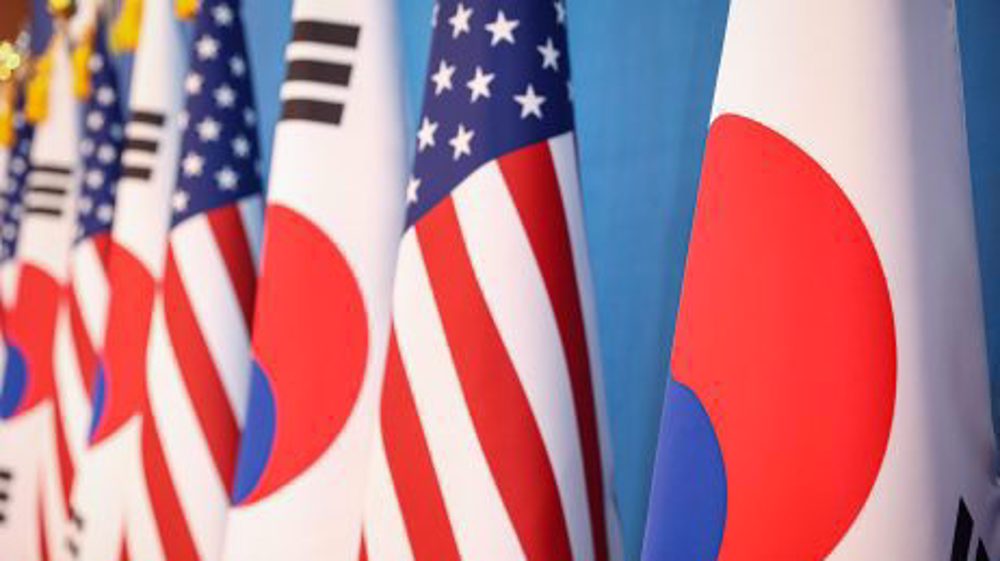
US-South Korea trade tensions
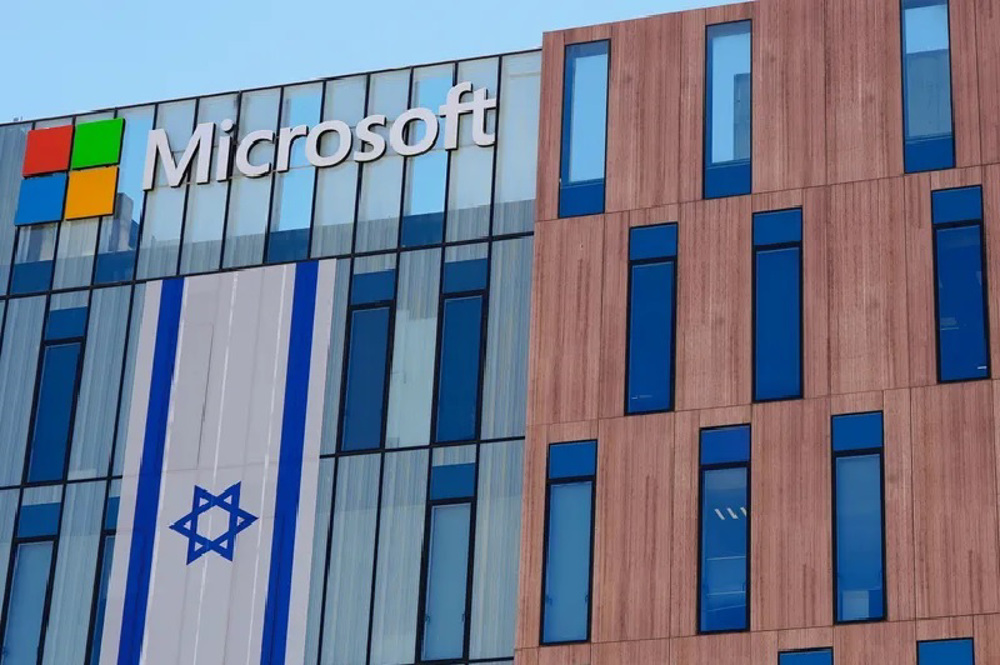
Microsoft collaboration in Gaza genocide
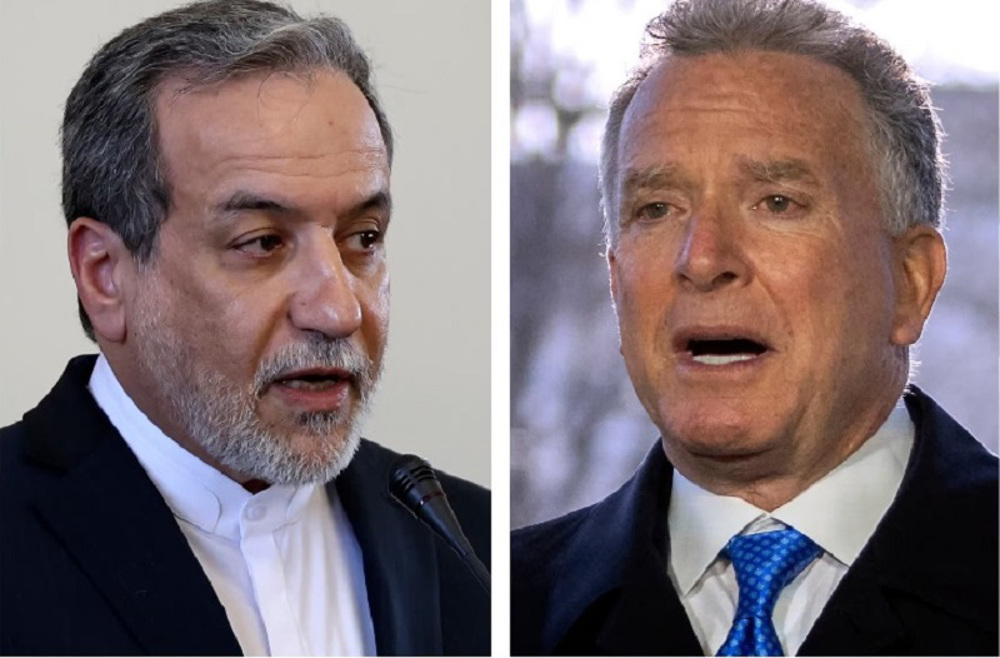
Indirect Iran-US talks proceed on 'constructive' note
Trump poised to sell arms worth $100 billion to Saudi Arabia: Report
'War is defeat': Pope Francis will be remembered for his moral stand on Gaza
Cases of Esfandiari and Hazamy: France’s quiet war on Muslim, Iranian, pro-Gaza voices
VIDEO | India-Pakistan tension
Indonesia, Iran stress commitment to expanding relations
Israel threatens 'larger' war on Gaza with new evacuation orders
Senior diplomats from Iran, Russia, China hold talks with IAEA chief
Two US marines accused of raping Japanese women in Okinawa


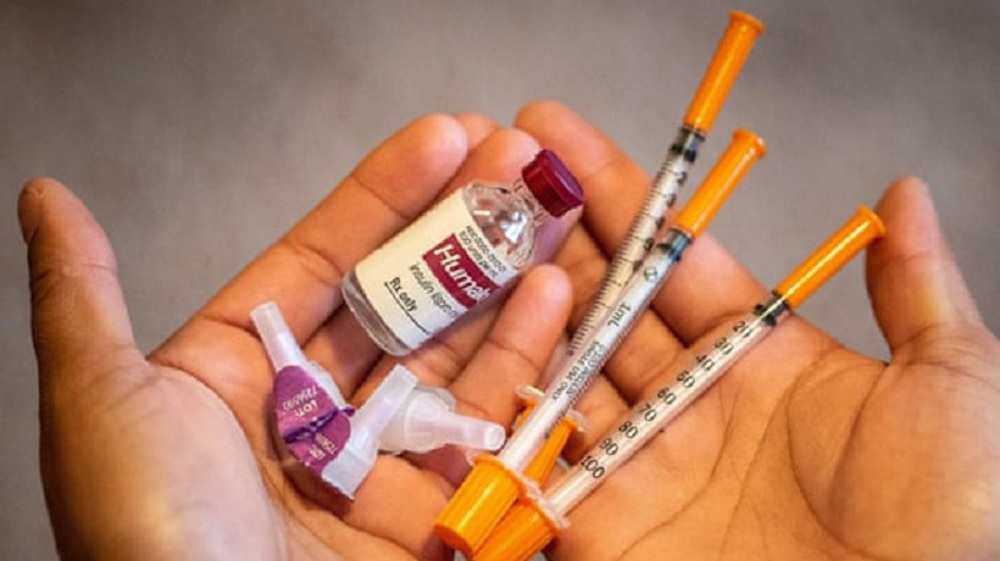
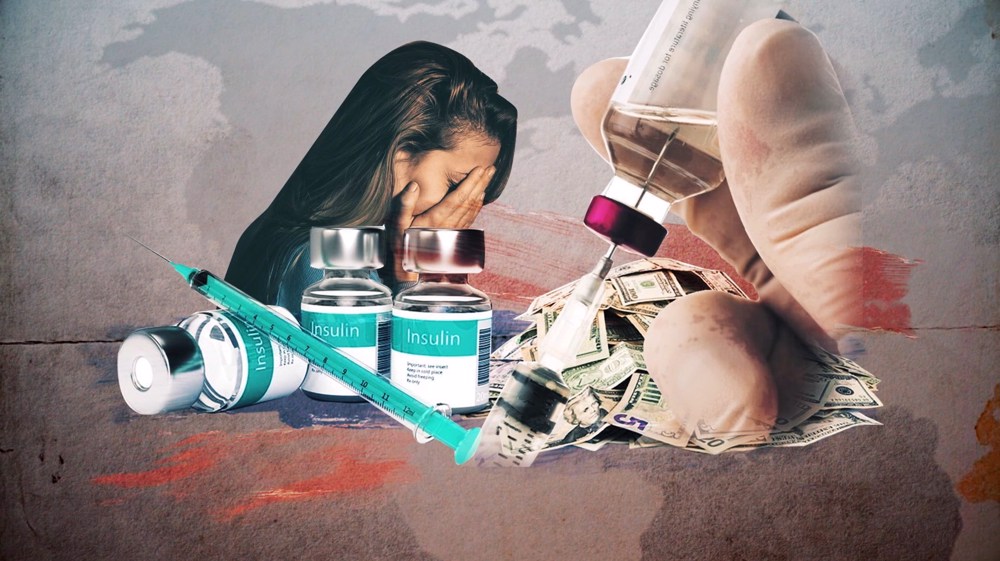
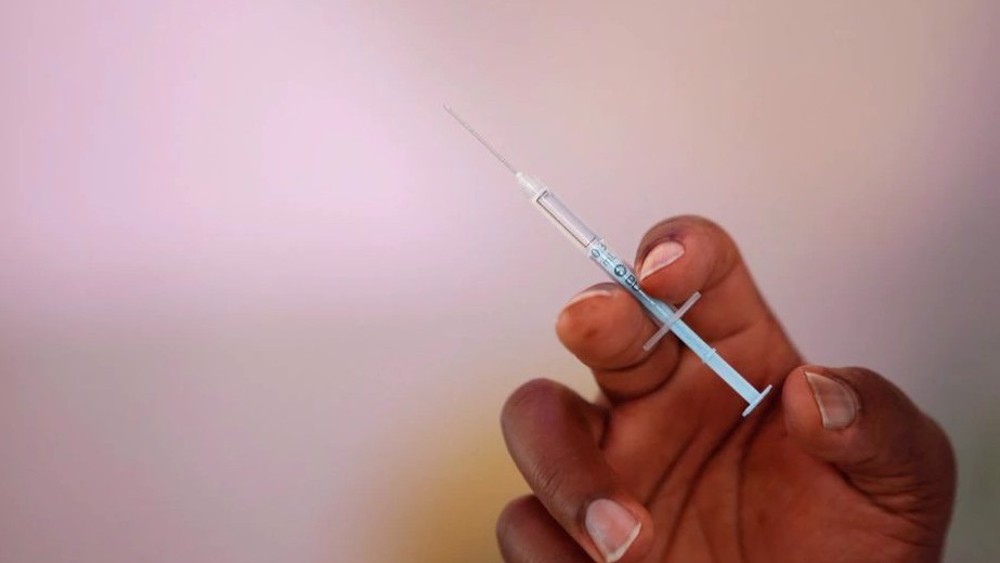
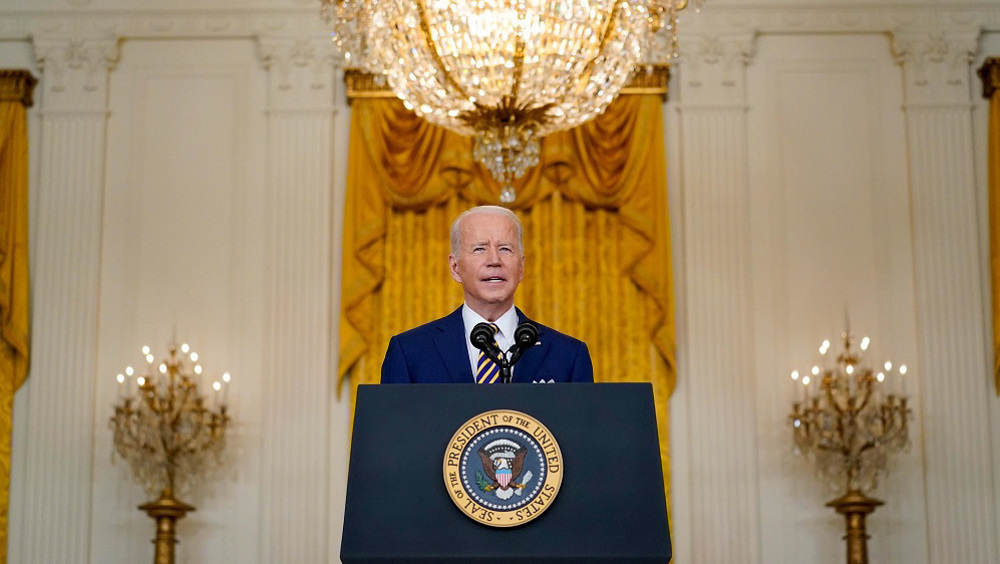
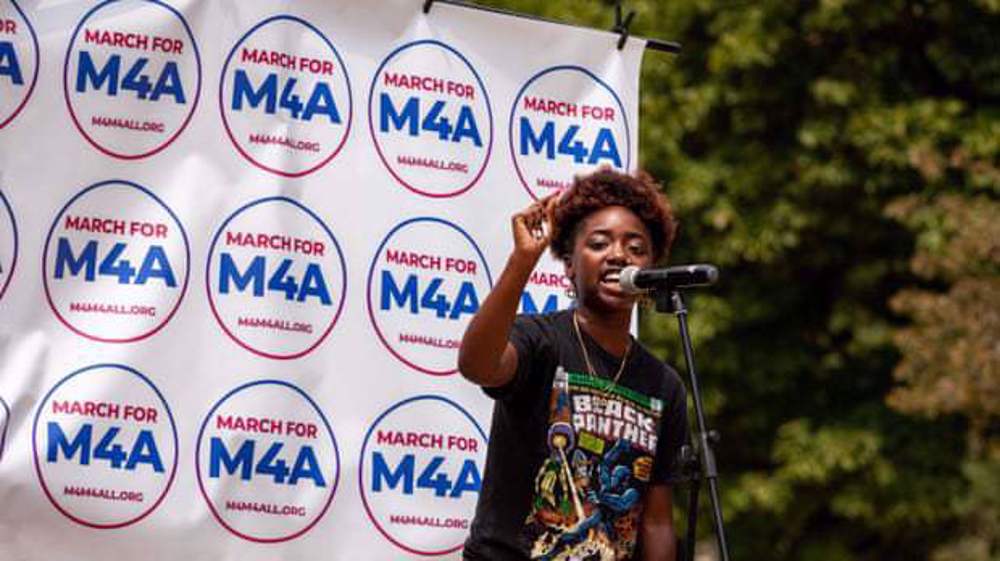
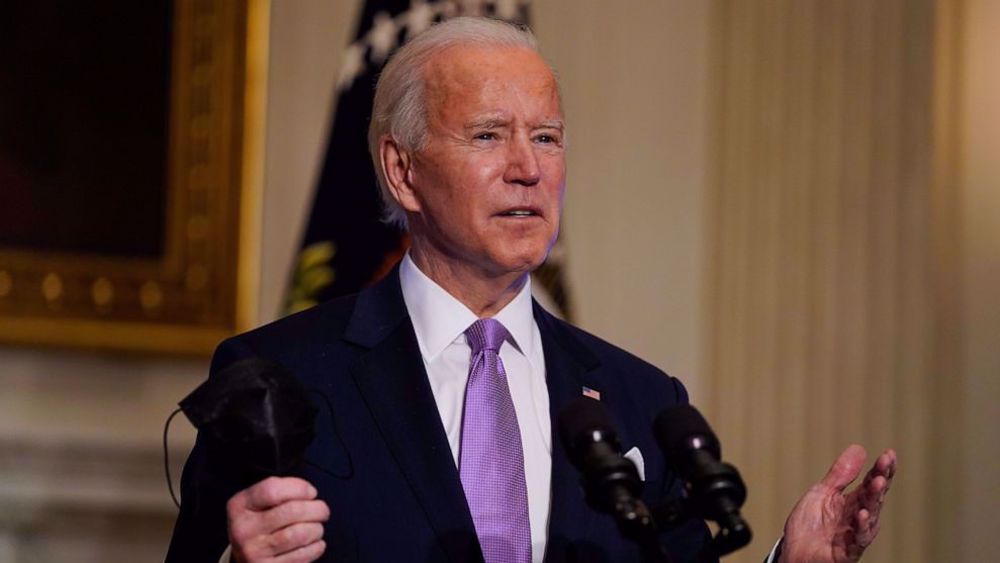

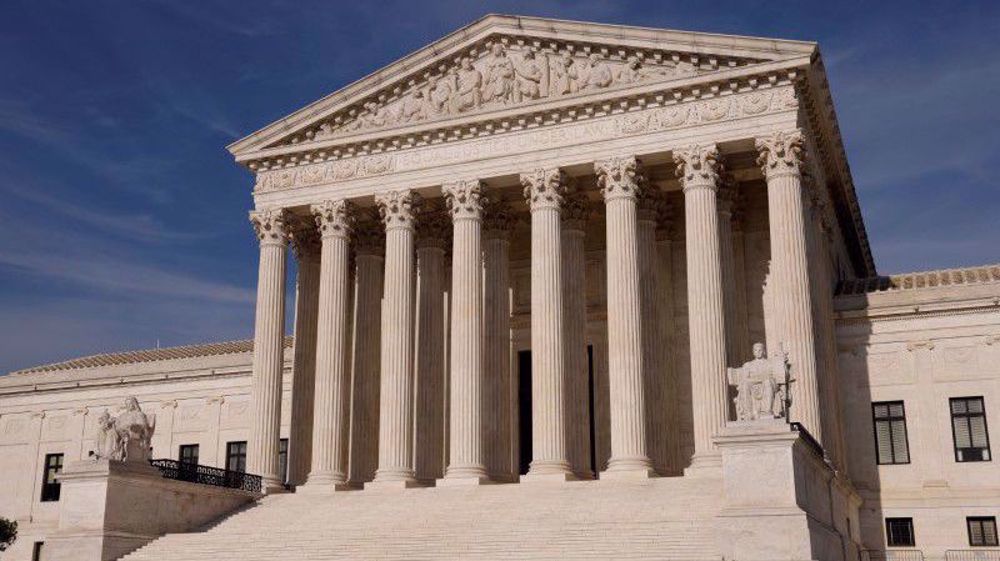
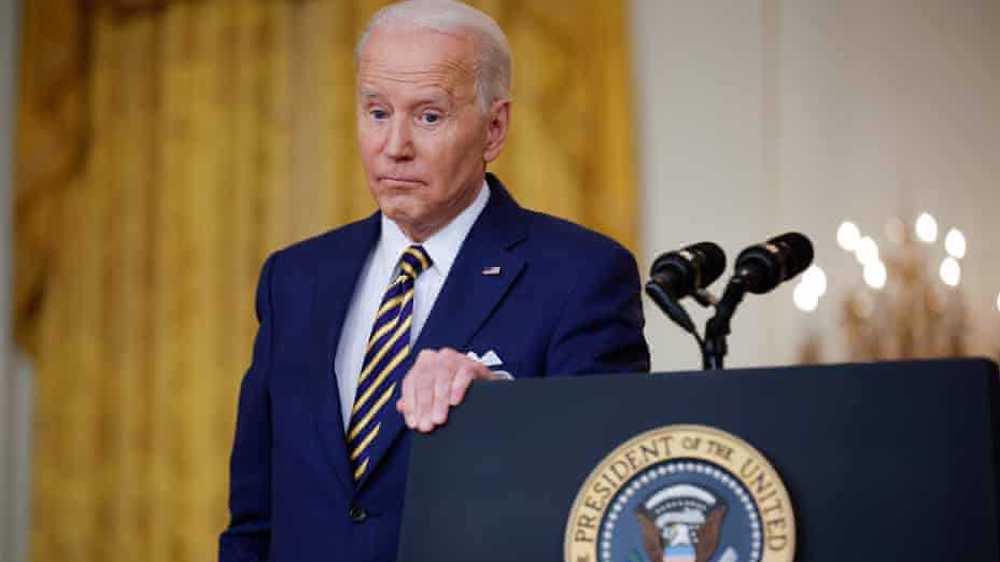
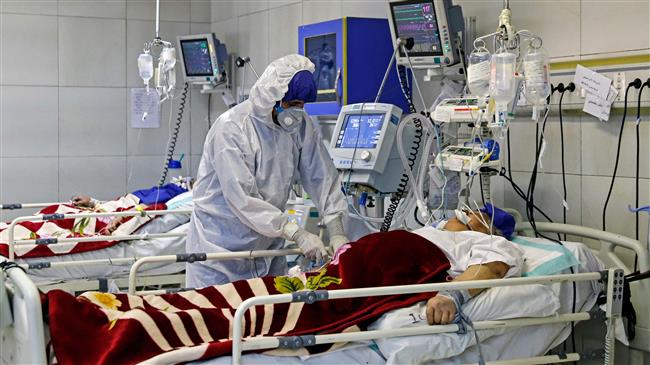



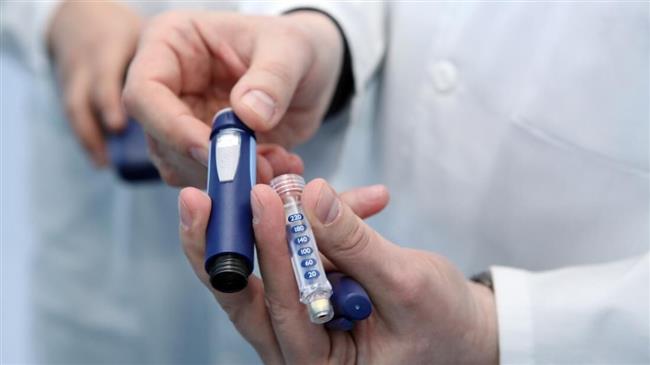
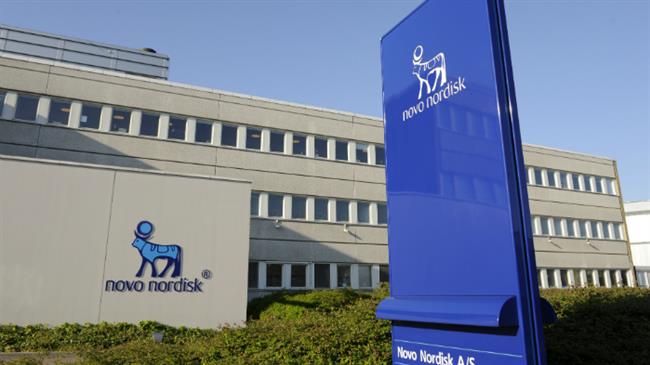
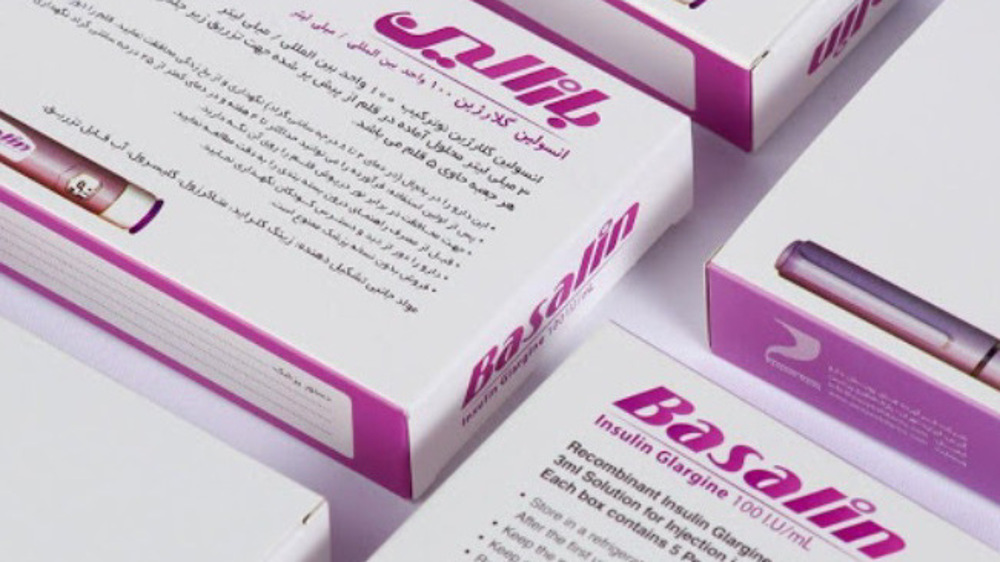


 This makes it easy to access the Press TV website
This makes it easy to access the Press TV website